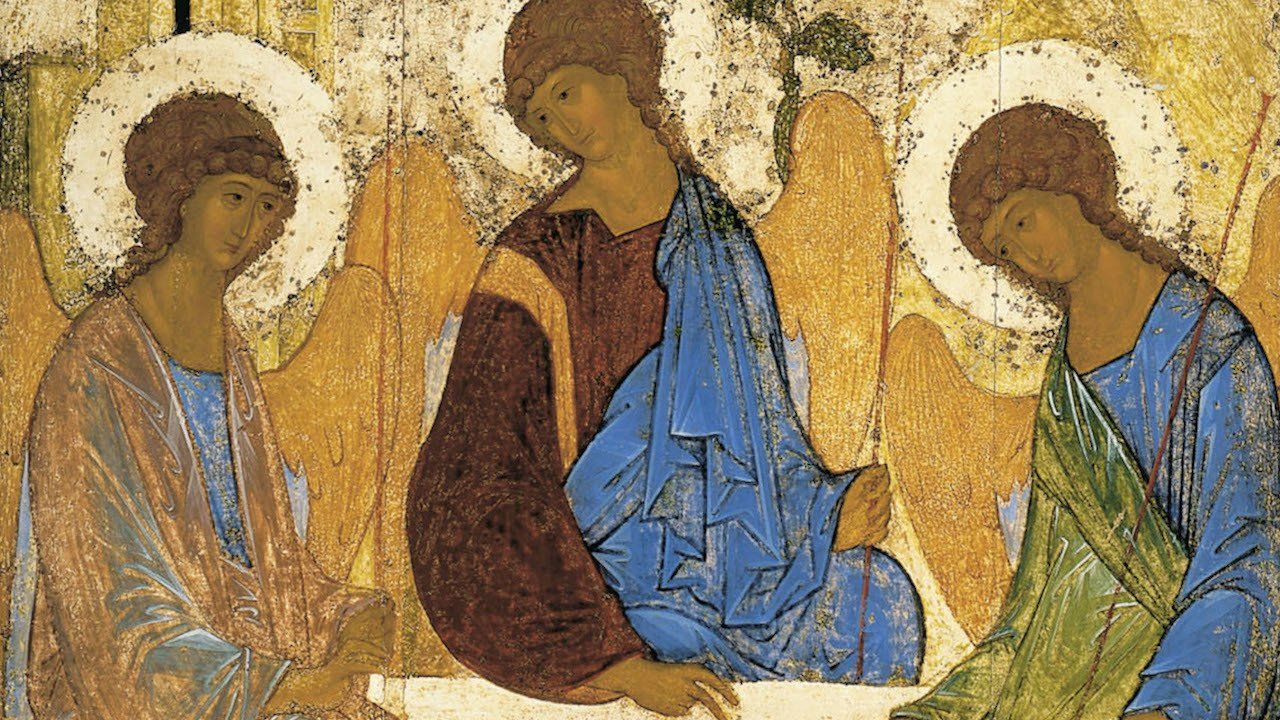WHAT ACTUALLYcan happen? This question has nothing to do with empty prophecies, such as are in vogue nowadays. We would simply consider a few eventualities of future development, and perhaps in the prospect of these we shall find the answer to our main question, what are we to do?
Now, first of all, it would be possible to allow things to go quietly forward in the direction they have taken for the last three or four centuries, the steady downward trend of intellectual and spiritual secularization to proceed unchecked. We should then look calmly on while the positivist spirit of the age reinforced still deeper its dogma of the mere immanence of being and propagated it steadily among the great masses of people. The inevitable consequences of such a nihilistic apostolate are scarcely doubtful. The example of Moscow should have proved to the most blind indifferentist that where the purely fatalistic principle of laissez-faire
is given full rein events will work out their inevitable logic and produce the fall of Western civilization. For when man loses faith in the power of positive ideas, things begin to dictate to him the law of their intrinsic development, arid – amazingly enough – always find nihilistic personalities to carry out their work of destruction when constructive personalities are wanting.
We might, indeed, ask what it matters, after all, if Western culture is destroyed. It would not be the end of the world. World history would merely assume a fresh aspect, by the shifting of its center of gravity from Europe to some other continent. And the Catholic could go further, and add that even if Western culture were destroyed, the Christian work of salvation and its natural-supernatural institution, the Church, would survive the ruin intact.
No Catholic worthy of the name would attempt to deny this last contention. For him the Church of God – portae inferi non praevalebunt contra eam
– stands fast as a rock amidst the ebb and flow of temporal movements. And yet we, too, we men of the Christian West, are called upon to assist, by our action and our sacrifice, in assuring the stability of the Christian sanctuary in a non-Christian world. This indeed belongs to the supernatural aspect of our Western history. But from the natural standpoint also we are faced by a demand no less grave. For “man must make history,” as Willy Helpach aptly puts it; that is, it is not permitted to any man or race to renounce the will to heroic action, so long as even a spark of life remains in that man or people.
It is, of course, possible to visualize another possible development. History is, after all, not only the work of the human will. It represents a certain cooperation between the human and divine wills, a mysterious interplay between the providence of God and the intentions and deeds of men. We might therefore ask whether God’s providence may not someday intervene directly to effect a decisive turn in this downward process? God could indeed raise up among us great saints, men and women, who would set an example to their age of supernatural life actually lived, and, at the same time, by their personal sacrifice, mystically effect, as it were, a vicarious redemption from the tremendous load of universal guilt, whose weight prevents our contemporaries from ascending to a higher level of existence.
Has not this perhaps actually happened in France? Was not the spiritual life of nineteenth-century France penetrated in its entirety by the silent, one might almost say anonymous, sanctifying work of quite simple people, who offered themselves to God in order to make atonement, not for themselves alone, but for their country and their age? And were not these souls genuine springs of spiritual power which, as time went on, watered the land which Voltaire and his fellows had laid waste? Already we can estimate how much the revival of the Christian spirit among the Catholic intelligentsia in France owes to the holy life and work of such a man as the saintly Curé d’Ars. Do we not meet everywhere with the profound traces of his activity. Those who have read Huysman’s Cathédrale
or En Route
or Bernanos’ Sous le Soleil de Satan
– I have no intention of excusing or concealing the jansenistic blemishes of this latter work – will understand the extent of France’s debt to this single man. And they will also understand what it means. It means that for humanity there is not only a degrading solidarity of fate and guilt, but a solidarity of goodness also, and that whenever a human being in silent self-dedication devotes his life wholly to God, the general level of personal conduct around him immediately begins to rise, whether or not we are conscious of the effect.
Why then, we may ask, should not God raise up among ourselves also some great figure, like, for instance, St. Francis or St. Dominic, who through the miracle and grace of his character would bring about at one blow the great reaction, which the weakness of our hands and the poverty of our souls makes it impossible to effect by the natural way of isolated actions. It would surely be a mistake if we men of little faith denied the possibility of such an amazing intervention of Providence. But it would be equally mistaken to get rid of all personal responsibility. That would be as disastrous a fatalism as that described above. It is true, spiritus ubi vult spirat; we can never force the Spirit’s miracle of grace; we must hope for it, wait for it, beg for it. But we must never make such a hope the pretext for sinking into a mystic lethargy, for shirking personal effort. We ourselves must begin to take action, and only then may we justly expect that God will act with us. We must ourselves try to prepare for the new outpouring of the Spirit.~Peter Wust, Crisis in the West










